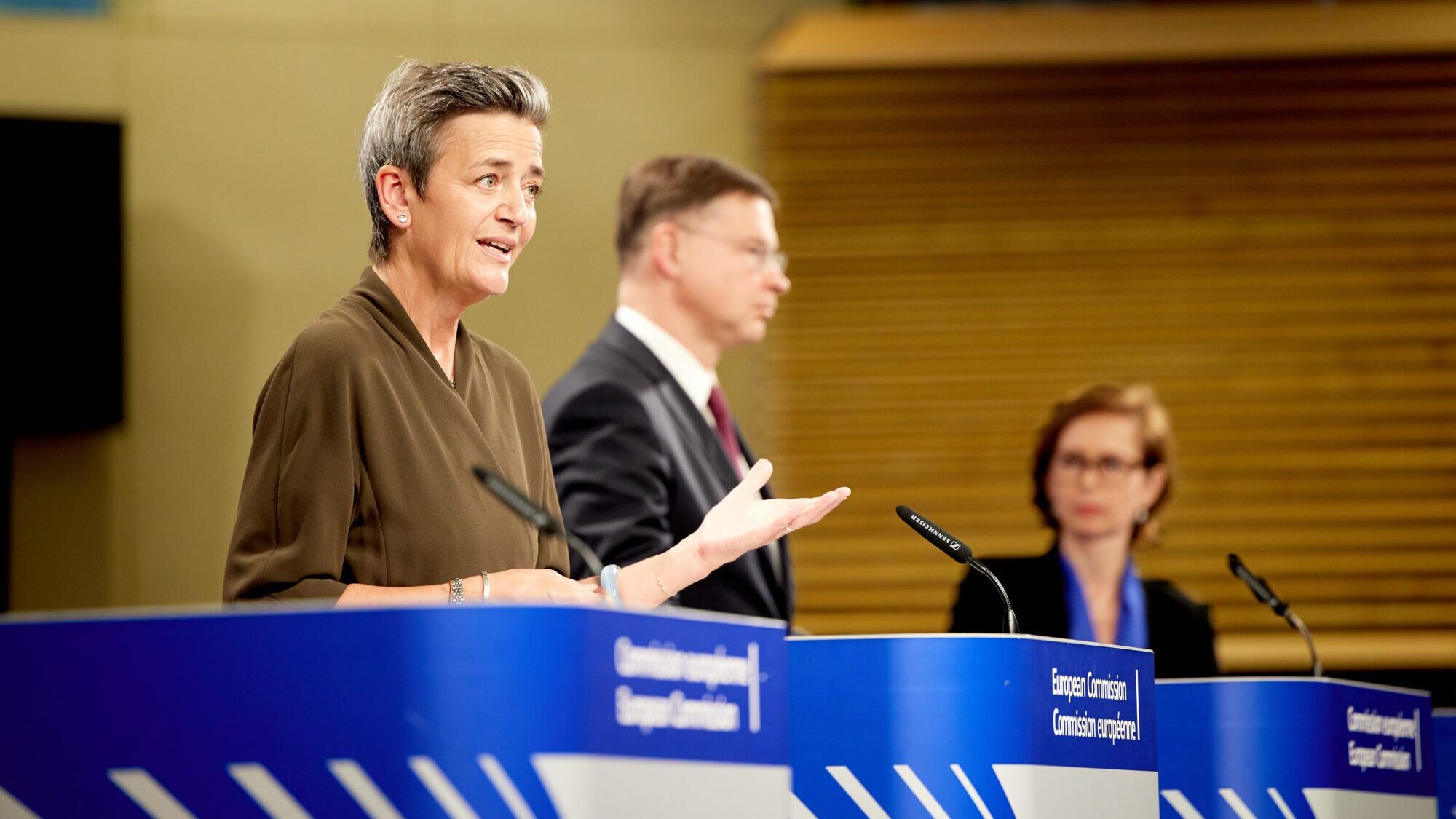
Margrethe Vestager, Executive Vice-President of the European Commission in charge of Europe fit for the Digital Age, and Commissioner for Competition, at the press conference presenting the European Economic Security Strategy.
Photo: Claudio Centonze © European Union 2023
Brussels continues down the path of tentatively cutting ties with China as the EU Commission on June 20th launched a series of protectionist measures to combat over-dependence on the Chinese economy.
The ‘European Economic Security Strategy,’ a joint undertaking between the Commission and the EU foreign policy service, is designed to mitigate the risks caused by unsustainable reliance on China and other powers.
The EU has pondered its future relationship with China for most of the past year while pro-Atlanticist factions push for a more hawkish stance towards the rising Asian power.
The strategy envisions greater state intervention in the screening of foreign investments that involve national security interests as well as the establishment of strict export and outsourcing rules to prevent the loss of intellectual property.
According to the strategy, the EU will also become more aggressive toward foreign companies buying up critical infrastructure, just as Italy broke from China’s Belt and Road initiative because foreign investment posed risks to Italian national sovereignty.
In a press conference announcing the policy shift, Commission President Ursula von der Leyen said that it was still “business as usual” in terms of EU-China cooperation but that the EU would move to defend its vital interests henceforth. The EU has denied that the raft of regulations is targeted specifically towards China. EU Competition Chief Margrethe Vestager referred to the measures as “country agnostic” and merely the EU’s way of dealing with a changing world.
“We seek a multifaceted approach to China, characterised by de-risking, not decoupling.
— European Commission (@EU_Commission) May 15, 2023
We have to strengthen our own economic vibrancy and reduce dependencies.
We stand together as partners on core foreign policy and security challenges.”
— President @vonderLeyen ahead of the… pic.twitter.com/eKfahVfSdB
A new departure for EU security policy away from free trade and towards European strategic autonomy, the strategy encompasses the protection of supply chains, cybersecurity, and intellectual property as it calls for a joint EU-wide approach to assessing risk on foreign investments.
The strategy specifically identifies quantum computing, semiconductor production, and AI technology as major strategic assets that cannot be outsourced.
Europe is slowly following the example of the United States in curtailing exposure to the Chinese economy amid fears of a looming split with the Orient over Taiwan and alleged Chinese support for the Russian war effort in Ukraine.
The EU has been lambasted by security experts in recent months for not taking into account its dependence on China for critical green technology as well as, until recently, turning a blind eye to Chinese espionage risks posed by the Huawei technology network.
The policy announcement is just the latest in a string of protectionist measures to buttress the European economy against a split from China as EU officials ponder sanctions against Chinese companies for allegedly supplying European military hardware to the Russian army in Ukraine.
Member states are split on the Chinese question as French President Emmanuel Macron warned of the need for the EU to assert itself on the world stage against the whims of the United States, saying that a botched decoupling from China could be fatal to the European economy.
The proposals are expected to be the main topic of discussion during this month’s meeting of EU heads of state in Brussels as the Netherlands becomes the first EU nation to impose export restrictions on Chinese semiconductors essential to the modern economy.
Disengagement from China is a major aim of pro-Atlanticist voices within EU institutions and policy circles. Pundits say that sanctions against Russia are just a precursor to the chaos that could be caused in the event of a break with China.
